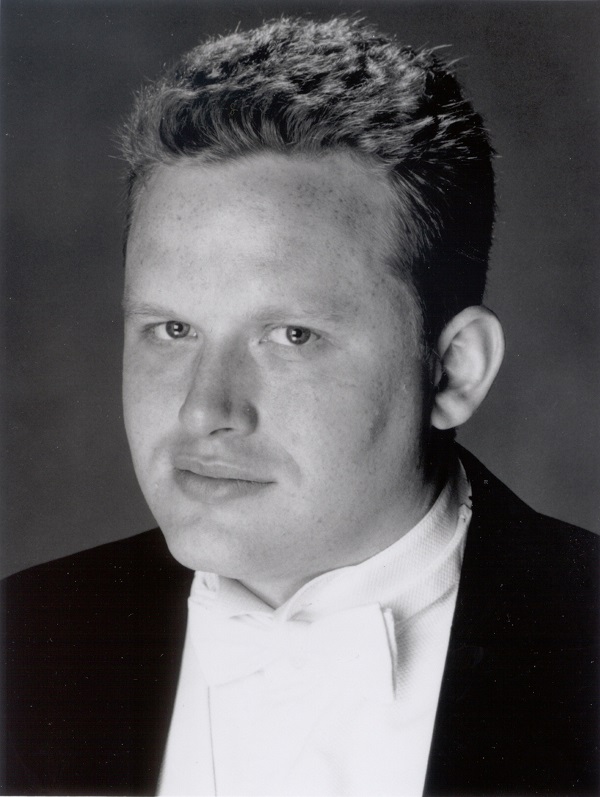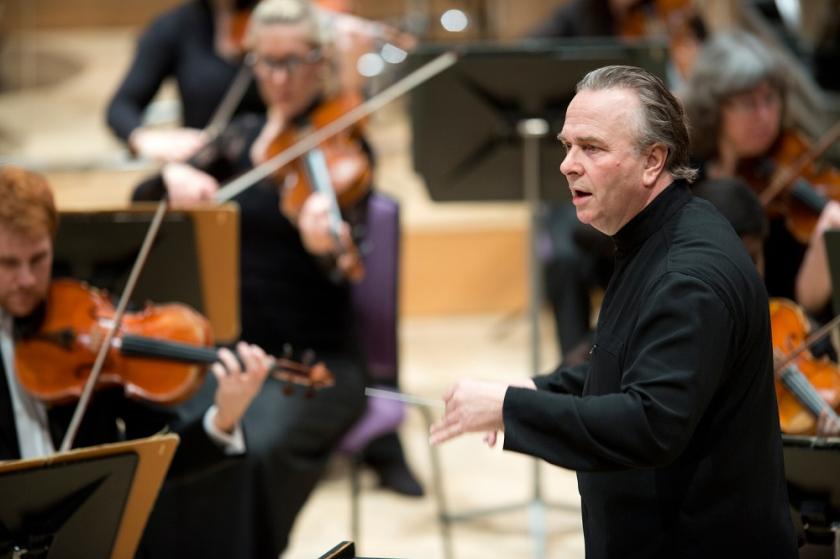How do you mark the Verdi bicentenary? As music director of the Hallé Orchestra and a Verdi specialist, Sir Mark Elder gave it a lot of thought. He decided to tell a story rather than direct a concert performance of one opera – say, La traviata. The story is that of the unlikely creative relationship between the composer and Arrigo Boito, who was 30 years Verdi’s junior and became an inspirational librettist for the later operas Otello and Falstaff, as well as reviving Simon Boccanegra.
Elder kicked off with an hour-long informal chat with author Jonathan Keates before proceeding to concert performances of substantial excerpts from the three operas. He even illustrated the pieces, especially Boccanegra, his favourite Verdi opera, singing (light tenor) at the keyboard, showing differences between the original unsuccessful version, premiered in 1857, and the 1881 Boito re-working. (Pictured below, Boito and Verdi)
 Being the man for a big occasion, Elder had about 200 voices at his disposal for the choruses, combining the Hallé Choir, Youth Choir and RNCM Chamber Choir, along with 10 international soloists. He started with the whole of Act One of Simon Boccanegra in Boito’s version. It’s a politically charged and convoluted plot at the best of times. about a man seeking national unity, as Verdi did himself. As the eponymous hero, the Texan baritone Scott Hendricks was on top form, bringing out both the anguish and the tenderness. The Italian soprano Maria Luigia Borsi withdrew with laryngitis to be more than adequately replaced by Elizabeth Llewellyn as Amelia. I have heard her sing the role before with English Touring Opera and was impressed. A soaring soprano, she was even more impressive this time – a rising star. Meanwhile Elder coaxed expressive sound out of his orchestra, showing just how the music reflects the changing moods of the action. He really did bring it to life.
Being the man for a big occasion, Elder had about 200 voices at his disposal for the choruses, combining the Hallé Choir, Youth Choir and RNCM Chamber Choir, along with 10 international soloists. He started with the whole of Act One of Simon Boccanegra in Boito’s version. It’s a politically charged and convoluted plot at the best of times. about a man seeking national unity, as Verdi did himself. As the eponymous hero, the Texan baritone Scott Hendricks was on top form, bringing out both the anguish and the tenderness. The Italian soprano Maria Luigia Borsi withdrew with laryngitis to be more than adequately replaced by Elizabeth Llewellyn as Amelia. I have heard her sing the role before with English Touring Opera and was impressed. A soaring soprano, she was even more impressive this time – a rising star. Meanwhile Elder coaxed expressive sound out of his orchestra, showing just how the music reflects the changing moods of the action. He really did bring it to life.
Next came Act Two, Scene One of Falstaff, showing Verdi in witty vein as our hero is duped into thinking that Alice Ford is his for the taking. David Stout not only sang the part with conviction, but within the limits of a concert performance acted it well and looked the part. He was splendidly matched by Hendricks’s duplicitous Ford, in disguise as Fontana (a fountain proffering wine to the old soak) and egging him on. Elder revelled in the fun and the glorious melodies of the score.
 And so from knockabout farce to the high tragedy of Otello, which took Verdi six years to complete after Boito had delivered his libretto. Here Elder proudly introduced a new English Otello – “They don’t grow on trees, you know,” he said. Peter Auty (pictured left) acquitted himself with distinction in Act III while again Hendricks impressed, this time as Iago. The two of them played off each other tellingly. Judith Howarth took over at short notice as Desdemona in place of Borsi. The fact that she was holding and following her score restricted interaction with Auty’s Otello, but her singing exuded quality.
And so from knockabout farce to the high tragedy of Otello, which took Verdi six years to complete after Boito had delivered his libretto. Here Elder proudly introduced a new English Otello – “They don’t grow on trees, you know,” he said. Peter Auty (pictured left) acquitted himself with distinction in Act III while again Hendricks impressed, this time as Iago. The two of them played off each other tellingly. Judith Howarth took over at short notice as Desdemona in place of Borsi. The fact that she was holding and following her score restricted interaction with Auty’s Otello, but her singing exuded quality.
Inevitably, the choruses throughout were tremendous, none more than in the “Hail the Lion of St Mark” climax from a distant crowd as Iago gloats over the poisoned Otello. And the orchestra, responding to Elder’s enthusiasm, was in excellent form. This was an original Verdi celebration, dreamt up by Sir Mark. The fact that he has agreed to stay on as music director here until at least 2020, which will see him complete 20 years in the post, has delighted Manchester music-goers.














Add comment